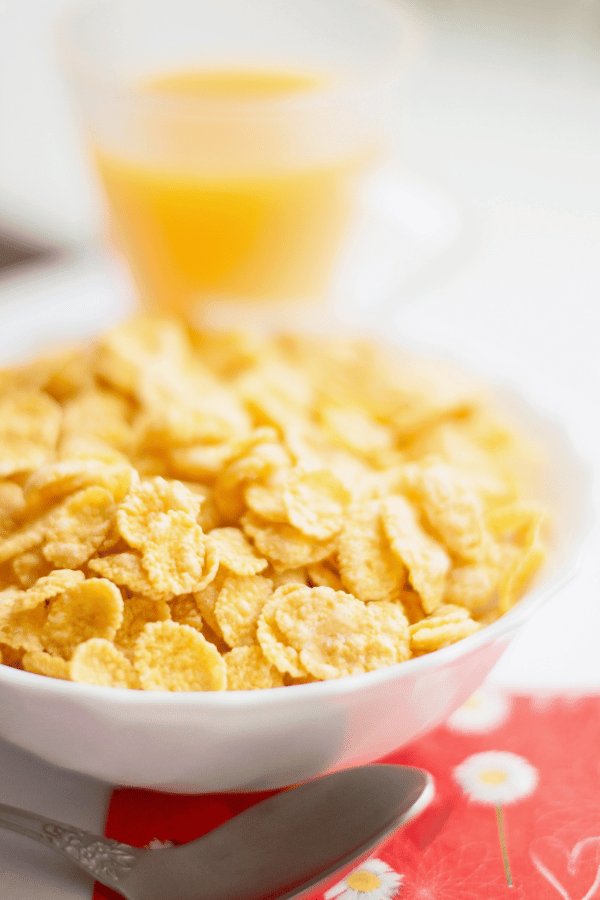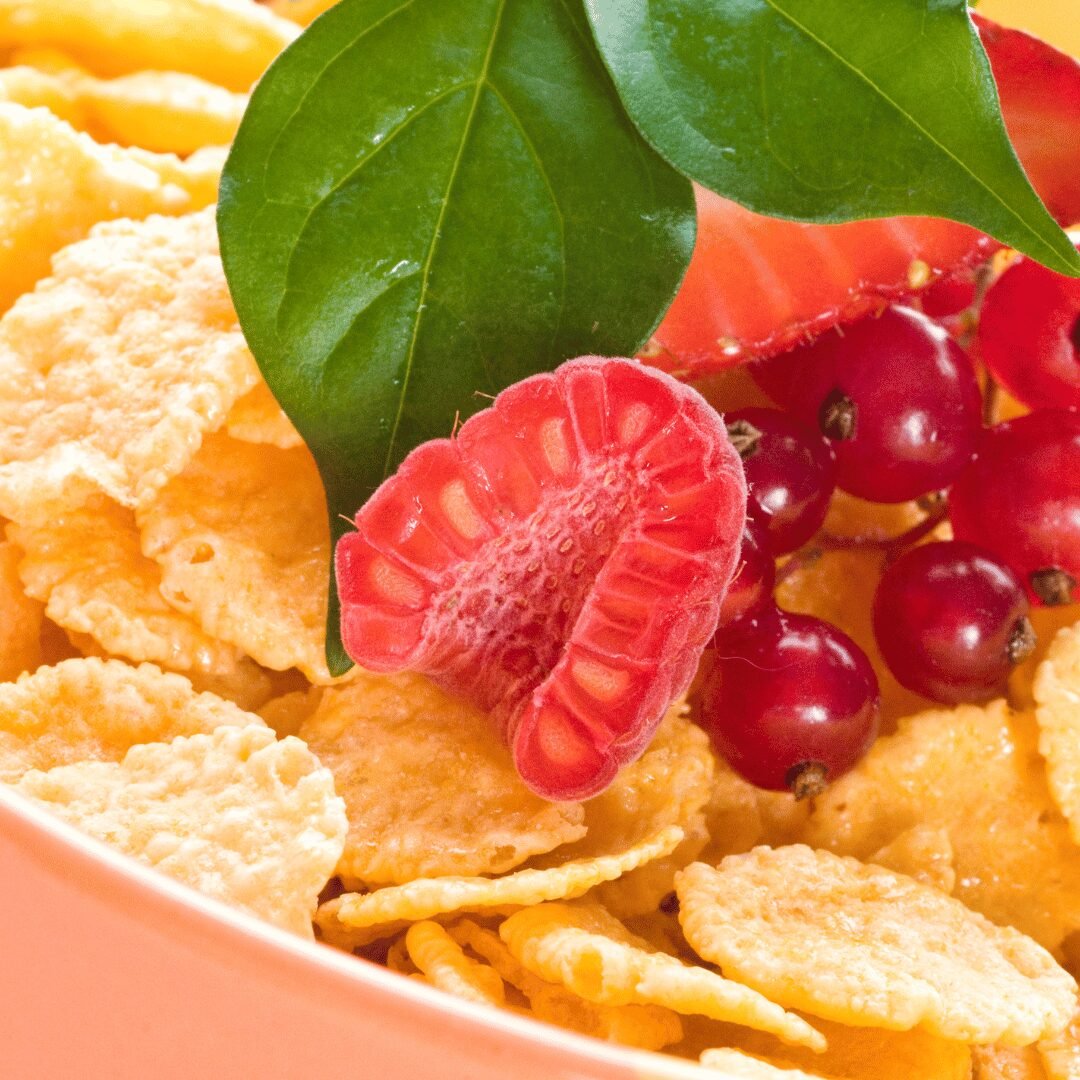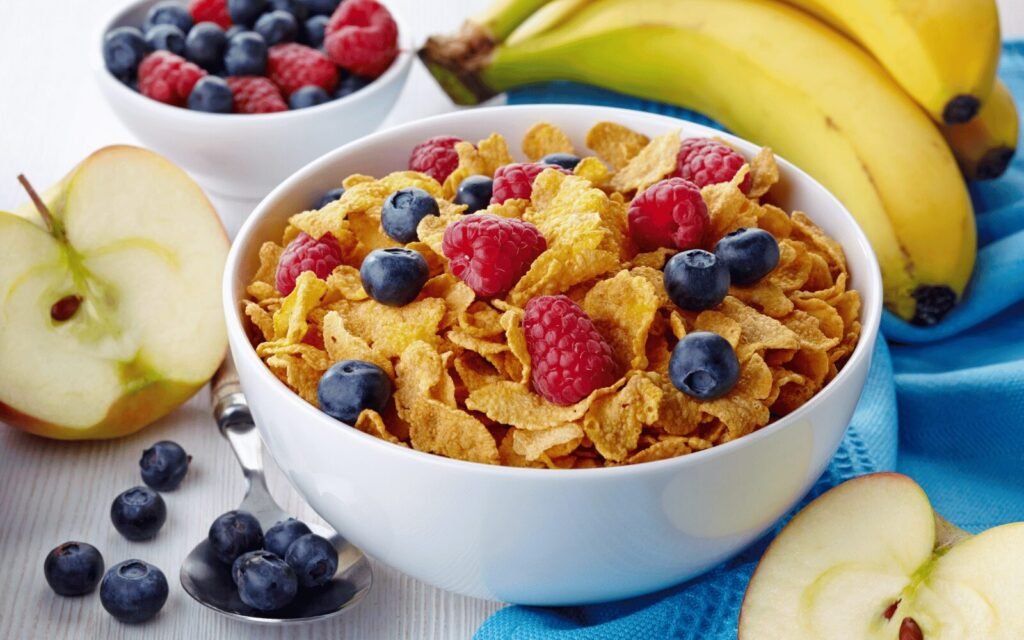We Heard Crunch Of Cornflakes. But how good is it for your health?
Shataghnee Chanda
July 31, 2024. 4 minute Read
For countless people, the day begins with the familiar crunch of cornflakes, drenched in a splash of cold/hot milk. It’s a breakfast staple that promises convenience and a quick start to the day.
But as we become more health-conscious, it becomes crucial to ask: are cornflakes really a healthy choice?
On the surface, cornflakes seem like an ideal morning meal—quick, easy, and seemingly light. Advertisements and colourful packaging often depict them as a wholesome start to the day. However, the reality might surprise you.
Beyond the convenient facade lies a product that might not be as beneficial as it appears.
"
In this article, we’ll dive into the reality behind those golden flakes. While they may seem like an innocent and nutritious option, there’s more to consider about their actual health benefits. Are they secretly sabotaging your diet, or can you make adjustments to boost their nutritional value?
We’ll explore why cornflakes might not be as healthy as you’d hope, uncovering aspects like hidden sugars, lack of essential nutrients, and their impact on your metabolism.
But don’t worry, we won’t leave you hanging.
We’ll also provide practical tips and tricks on how to transform your morning bowl into a genuinely healthy meal.
Beyond Breakfast Bowl: Truth behind Cornflakes!
What does a healthy breakfast look like?
Research shows that A healthy breakfast should include a variety of foods from the five food groups, and should provide a balance of protein, healthy fats, and carbohydrates. But, do cornflakes provide these nutrients? Let’s find out why Cornflakes might not be as healthy as they seem to be!
1. Most Corn-Flakes Brand Are High In Sugar
Many brands of cornflakes contain added sugars, which are often not immediately apparent when you glance at the box. A seemingly modest serving can harbour several teaspoons of sugar, contributing to your daily intake. High sugar consumption is associated with numerous health issues, including weight gain, insulin resistance, and an increased risk of type 2 diabetes.
When you consume these sugars in the morning, it causes a rapid spike in your blood sugar levels. This leads to a quick burst of energy, often followed by a crash that leaves you feeling tired and hungry long before your next meal. This cycle can create a dependency on sugary snacks throughout the day to keep your energy levels up.
2. Low in Fiber
Cornflakes are typically low in dietary fibre, which is crucial for maintaining healthy digestion and prolonging the feeling of fullness. Fibre slows the digestion process, helping to stabilise blood sugar levels and sustain energy.
Without sufficient fibre, your breakfast won’t keep you full for long, leading to mid-morning hunger pangs and the temptation to snack on unhealthy foods. A lack of fibre can also result in digestive issues such as constipation and can contribute to longer-term health problems like heart disease and certain types of cancer.
3. Lack of Protein
Protein is another vital nutrient that helps keep you full and energised throughout the day. Unfortunately, cornflakes, particularly when consumed with just milk, often lack sufficient protein. A typical bowl of cornflakes with milk provides a minimal amount of protein, insufficient to sustain you through the morning.
Protein helps in muscle repair, supports metabolism, and promotes satiety. Without it, you’re more likely to experience hunger before your next meal, which can lead to unhealthy snacking and overeating.
4. Sub Product of Refined Grains
Cornflakes are made from refined grains, meaning the nutritious parts of the grain have been removed during processing. This process strips away the fibre, vitamins, and minerals that are naturally present in whole grains, leaving behind a product that is mostly starch.
Consuming refined grains can lead to weight gain, as they are less filling and have a higher glycemic index than whole grains. They also increase the risk of several chronic diseases, including type 2 diabetes and heart disease, due to their rapid digestion and effect on blood sugar levels.


5. Has Added Preservatives and Artificial Ingredients
To extend their shelf life and enhance flavour, many cornflakes contain preservatives and artificial ingredients. These additives can be harmful to your health over time. Preservatives may cause allergic reactions and have been linked to digestive issues and other health problems.
Artificial flavours and colours can also have adverse effects, especially in children, leading to hyperactivity and other behavioural issues. Long-term consumption of these additives can contribute to a range of health concerns, making your morning bowl of cereal less healthy than it appears.
6. High Glycemic Index
Cornflakes have a high glycemic index (GI), meaning they cause a rapid increase in blood sugar levels. Foods with a high GI are quickly digested and absorbed, leading to a swift rise in blood sugar and insulin levels. This can contribute to insulin resistance, a precursor to type 2 diabetes.
Regularly consuming high GI foods can also increase the risk of developing metabolic syndrome, which includes conditions like high blood pressure, high blood sugar, and abnormal cholesterol levels. Managing blood sugar levels is crucial for maintaining overall health, and high GI foods like cornflakes make this more challenging.
7. Lack of Essential Nutrients
Despite being fortified with vitamins and minerals, cornflakes don’t provide a balanced range of essential nutrients. Fortification is often used to replace some of the nutrients lost during processing, but it doesn’t make up for the natural, wholesome nutrients found in less processed foods.
Cornflakes are low in healthy fats, antioxidants, and certain vitamins and minerals that you get from whole foods like fruits, vegetables, nuts, and seeds. This lack of essential nutrients means that relying on cornflakes for breakfast can contribute to nutritional deficiencies over time.
8. Portion Control Issues
It’s easy to pour a large bowl of cornflakes without realising how much you’re eating. The recommended serving size is often much smaller than what people typically consume, leading to unintended overeating. This can result in a higher calorie intake than expected, especially when combined with milk, sugar, or other toppings.
Over time, this can contribute to weight gain and associated health problems. Being mindful of portion sizes and measuring out your cereal can help manage calorie intake, but the low satiety provided by cornflakes can still leave you feeling hungry soon after eating.
Cornflakes are a breakfast staple for many, but they often fall short on essential nutrients. The good news is, with a few simple tweaks, you can transform your bowl of cornflakes into a much healthier meal. Here are some easy and delicious ways to boost the nutritional value of your breakfast:
How to Make Your Cornflakes Healthier?
Simple Tips for a Better Breakfast!
1. Add Omega-9-Rich Foods
Omega-9 fatty acids are beneficial for heart health and can help reduce inflammation. While cornflakes themselves don’t contain Omega-9, you can easily add sources of this healthy fat to your breakfast.
- Avocado Slices: Mash some avocado and mix it into your cornflakes for a creamy texture.
- Olive Oil Drizzle: A small drizzle of olive oil over your cornflakes can give them a healthy fat boost.
2. Boost Fibre Content
Cornflakes are often low in fibre, which is essential for digestion and keeping you full longer. Adding high-fibre foods can help improve this.
- Berries: Toss in a handful of fresh or frozen berries like strawberries, blueberries, or raspberries.
- Chia Seeds: Sprinkle a tablespoon of chia seeds on top. They’re an excellent source of fibre and expand in liquid, making your breakfast more filling.
3. Include Seeds for Extra Nutrients
Seeds are tiny powerhouses of nutrition, packed with healthy fats, protein, and essential minerals.
- Flaxseeds: Add a tablespoon of ground flaxseeds. They provide Omega-3 fatty acids and fibre.
- Pumpkin Seeds: These add a nice crunch and are rich in magnesium, zinc, and protein.

4. Include Natural Sweetener
Many commercial cornflakes come with added sugars, which can lead to energy crashes. Instead of using refined sugar, try sweetening your bowl naturally.
- Honey: Drizzle a teaspoon of honey over your cornflakes. It’s a natural sweetener with antioxidants.
- Maple Syrup: A splash of pure maple syrup can also add a touch of sweetness without the refined sugar.
5. Incorporate Protein for Sustained Energy
Protein is crucial for muscle repair and overall health. Adding a protein source to your cornflakes can keep you satisfied longer.
- Greek Yoghurt: Use Greek yoghurt instead of milk for a protein boost. It also adds a creamy texture.
- Nuts: Almonds, walnuts, or pecans are great options. Just sprinkle a handful over your cornflakes.
How to Make Your Cornflakes Healthier?
- Start with a base of plain cornflakes (avoid those with added sugars).
- Add a healthy fat source like avocado or a drizzle of olive oil.
- Boost the fibre content with berries and chia seeds.
- Sprinkle in some nutritious seeds like flax seeds and pumpkin seeds.
- Sweeten naturally with honey or maple syrup.
- Top with a protein source like Greek yoghurt or nuts.
Final Thoughts
In a nutshell
Cornflakes might be a convenient breakfast option, but they’re not the healthiest choice. They’re often high in sugar, low in fibre and protein, and made from refined grains. By making smarter choices and adding nutritious ingredients, you can create a healthier breakfast that will keep you full and energised throughout the morning.
These above mentioned simple additions not only enhance the nutritional profile of your cornflakes but also make your breakfast more satisfying and delicious.
By making these small changes, you can significantly improve the nutritional quality of your breakfast. Enjoy your healthier corn flakes and start your day off right!



